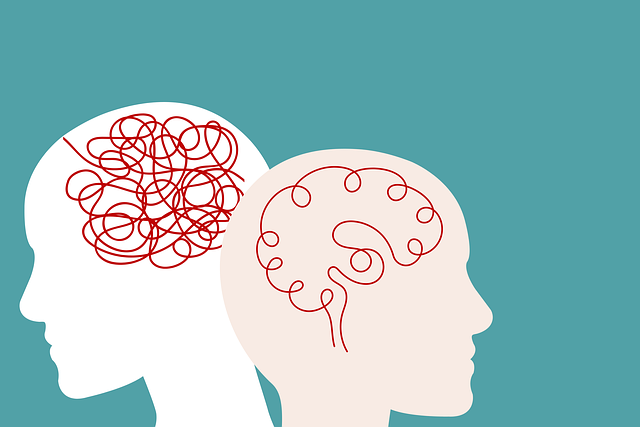Golden Abuse Survivors (GAS) can benefit significantly from integrating self-care routines, such as mindfulness and journaling, into their therapy with a focus on cultural sensitivity. Overcoming internalized shame and fear of retraumatization is crucial through supportive networks and safe spaces, enhancing their ability to practice self-care effectively. Therapy builds resilience, self-esteem, and strong coping skills, enabling GAS to manage stress and navigate life's challenges with healthy habits, even during difficult times.
Self-care is a vital component of healing for Golden Abuse Survivors. Understanding its significance goes beyond mere wellness; it’s a powerful tool for trauma recovery. This article delves into effective strategies, offering practical insights on integrating self-care routines tailored for survivors. We explore challenges and provide solutions to sustain healthy habits, emphasizing the transformative power of self-love in the healing process, as supported by Golden Abuse Survivors Therapy.
- Understanding Self-Care and Its Significance for Healing
- Strategies for Integrating Effective Self-Care Routines
- Overcoming Challenges and Sustaining Healthy Habits
Understanding Self-Care and Its Significance for Healing

Self-care is an essential component of healing for Golden Abuse Survivors (GAS), who often carry deep emotional scars from their past experiences. It involves a conscious decision to nurture one’s physical, mental, and emotional well-being, allowing individuals to reconnect with themselves and reclaim their sense of agency. GAS may have developed unhealthy coping mechanisms as a result of trauma, making it crucial for them to learn and incorporate self-care practices into their daily routines. This process is transformative, enabling survivors to build resilience, enhance their ability to manage stress, and foster a positive self-image.
Promoting self-care among GAS can be achieved through various means, including Mindfulness Meditation techniques that help calm the mind and process traumatic memories. Emotional Intelligence (EI) plays a pivotal role in this journey, as it equips survivors with the skills to recognize and manage their emotions effectively. Moreover, Mental Health Policy Analysis and Advocacy can contribute to creating supportive environments, ensuring access to specialized services tailored to GAS’ unique needs. By prioritizing self-care, these survivors can embark on a path of healing, transformation, and overall mental health improvement.
Strategies for Integrating Effective Self-Care Routines

Integrating effective self-care routines into your life is a crucial step for everyone, especially Golden Abuse Survivors Therapy (GAST) clients working on their resilience building journey. Starting small and focusing on consistency is key. Begin with simple practices like mindfulness meditation or journaling, which can be incorporated into daily rituals. Even dedicating 10 minutes each morning or evening to reflect and recharge can significantly impact overall well-being.
Additionally, cultural sensitivity in mental healthcare practice plays a vital role in self-care. GAST clients may benefit from social skills training to help them navigate interpersonal relationships and build supportive networks. By fostering connections with like-minded individuals, they can create safe spaces to express themselves, share experiences, and receive encouragement, further strengthening their ability to practice self-care effectively.
Overcoming Challenges and Sustaining Healthy Habits

Overcoming challenges is a pivotal step in enhancing self-care practices, especially for Golden Abuse Survivors (GAS) navigating therapy. The journey to healing often involves confronting past traumas and developing healthy coping mechanisms. GAS may face unique barriers, such as internalized shame or fear of re-traumatization, which can hinder their commitment to self-improvement. However, with the right support and tools, these challenges can be overcome. Therapy plays a crucial role in building resilience and self-esteem improvement, enabling individuals to develop effective coping skills for managing stress and emotional distress.
Sustaining healthy habits is not merely about willpower; it requires a holistic approach that addresses both mental and emotional well-being. By incorporating practices like mindfulness, regular exercise, and cultural sensitivity in mental healthcare, GAS can create lasting positive changes. Cultural sensitivity ensures that their unique needs and experiences are respected and understood, fostering an environment where they feel safe to explore and heal. Moreover, developing strong coping skills enables individuals to navigate life’s challenges with greater ease, ensuring that healthy habits remain a priority even during difficult times.
Self-care is a powerful tool for Golden Abuse Survivors, offering a path to healing and resilience. By integrating effective routines as discussed, individuals can take significant steps towards overcoming challenges and fostering long-lasting well-being. It’s not just about maintaining healthy habits; it’s a journey of self-discovery and empowerment, enabling survivors to thrive rather than just survive. With dedication and support, the benefits of improved self-care practices can reverberate through all aspects of life.














